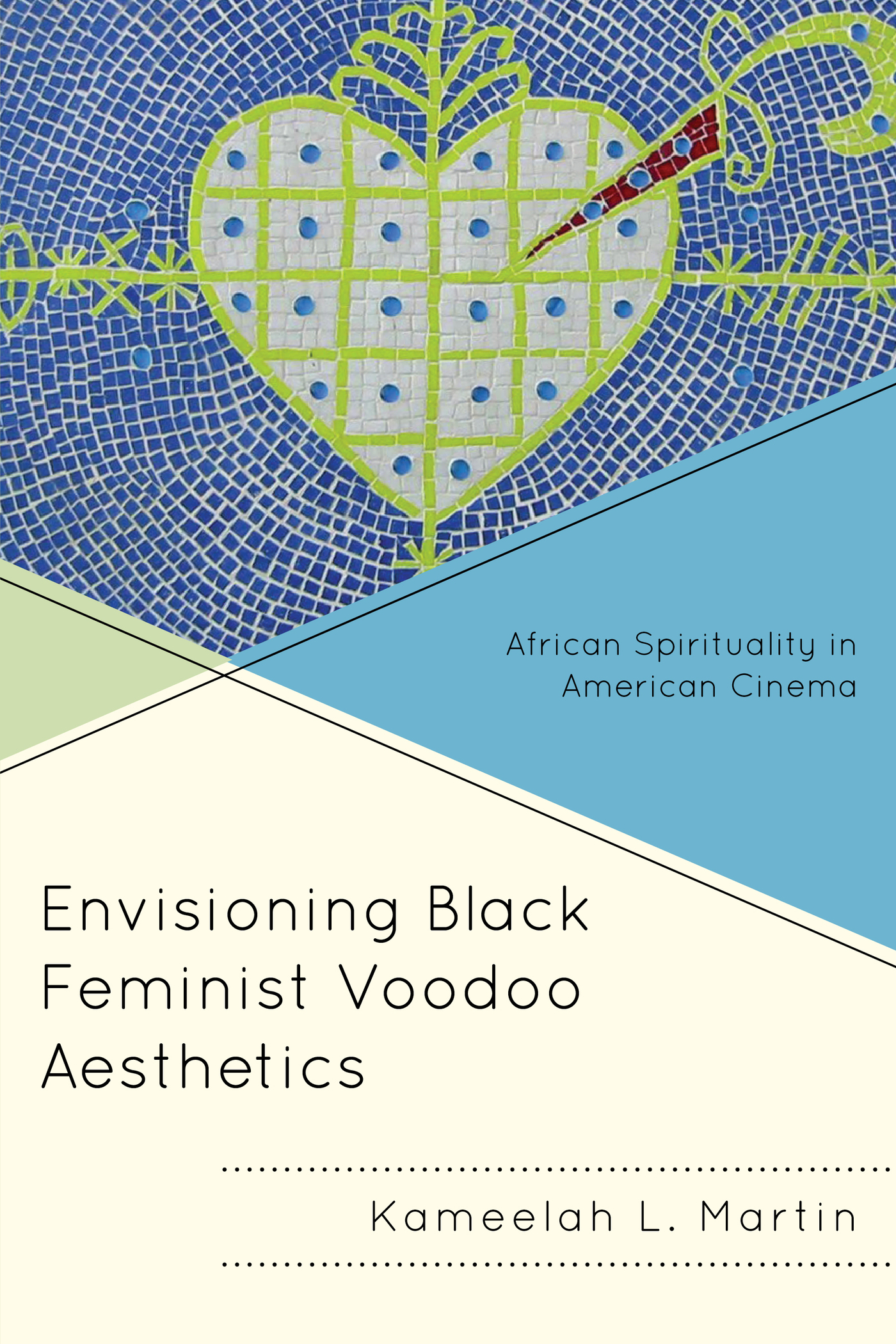Envisioning Black Feminist
Voodoo Aesthetics
Black Diasporic Worlds: Origins and
Evolutions from New World Slaving
Series Editors: Antonio Tillis and Elizabeth West
Black Diasporic Worlds is a humanities series whose publications highlight the transnational Africana experience that has resulted from and/or emerged alongside European exploits in the Americas. Additionally, it encompasses contemporary and comparative contexts that are a byproduct of multidirectional shifting of Africana people over space and time. Further, the Black Diasporic Worlds series represents works that query the transcultural and transnational understandings of contemporary articulation and impact of Africana in Europe and other geographies outside of the Americas.Publications will look at African derived people/populations/cultures/civilizations resulting from the economic and political dynamics of new world slaving and the ways it has informed experiences, nationalistic and racial orientations, and shaped the western world on both sides of the Atlantic. With regard to geographical scope, publications in this series will thus include works focusing on blacks in the Americas, in Europe, and could conceivably extend to the experiences of blacks beyond the western world whose destinies have been shaped by the legacy or spillover of new world slaving.
Recent Titles
Receptions of the Classics in the African Diaspora of the Hispanophone and Lusophone Worlds: Atlantis Otherwise, edited by Madeleine Henry and Elisa Rizo
Envisioning Black Feminist Voodoo Aesthetics: African Spirituality in American Cinema, by Kameelah L. Martin
Envisioning Black Feminist
Voodoo Aesthetics
African Spirituality in American Cinema
Kameelah L. Martin
LEXINGTON BOOKS
Lanham Boulder New York London
Published by Lexington Books
An imprint of The Rowman & Littlefield Publishing Group, Inc.
4501 Forbes Boulevard, Suite 200, Lanham, Maryland 20706
www.rowman.com
Unit A, Whitacre Mews, 26-34 Stannary Street, London SE11 4AB
Copyright 2016 by Lexington Books
All rights reserved. No part of this book may be reproduced in any form or by any electronic or mechanical means, including information storage and retrieval systems, without written permission from the publisher, except by a reviewer who may quote passages in a review.
British Library Cataloguing in Publication Information Available
Library of Congress Cataloging-in-Publication Data
Names: Martin, Kameelah L., 1978- author.
Title: Envisioning Black feminist voodoo aesthetics : African spirituality in American cinema / Kameelah L. Martin.
Description: Lanham : Lexington Books, [2016] | Series: Black diasporic worlds: origins and evolutions from new world slaving | Includes bibliographical references and index.
Identifiers: LCCN 2016030804 (print) | LCCN 2016039017 (ebook) | ISBN 9781498523288 (cloth : alk. paper) | ISBN 9781498523295 (electronic)
Subjects: LCSH: Vodou in motion pictures. | Motion picturesUnited StatesHistory. | African Americans and mass media. | Feminism and motion pictures. | Motion picturesReligious aspects. | Religion in motion pictures. | Feminist criticismUnited States. | Motion picturesSocial aspectsUnited States.
Classification: LCC PN1995.9.V66 M37 2016 (print) | LCC PN1995.9.V66 (ebook) | DDC 791.43/682dc23
LC record available at https://lccn.loc.gov/2016030804
 TM The paper used in this publication meets the minimum requirements of American National Standard for Information Sciences Permanence of Paper for Printed Library Materials, ANSI/NISO Z39.48-1992.
TM The paper used in this publication meets the minimum requirements of American National Standard for Information Sciences Permanence of Paper for Printed Library Materials, ANSI/NISO Z39.48-1992.
Printed in the United States of America
For Daddy and Dane
Keith Ledbetter
July 7, 1951March 13, 2014
Shidana Yvette Davis
November 21, 1975September 8, 2015
Dear God,
Please take care of my Grand-daddy.
Bring him to you safely and
Surround him with light and love.
Amen.
Isaiah Christopher, 2014
List of Illustrations
Acknowledgments
This project would not have been possible without the assistance, support, and mentorship of many folk. I first have to acknowledge and thank Molly Hand, my graduate school classmate, for insisting that I check out this film, The Skeleton Key, back in 2006. She knew I was researching the conjure tradition and excitedly shared that the film was toying with Charles Chesnutts conjure tales. I picked it up casually one evening at Target and thought it would be a good break from the monotony of writing for my life. I was blown awayas she had understated the films focus on conjuring and black narrative traditions. I literally stood up out of my seat at the ending, unable to contain my excitement at the intellectual eroticism it had incited. I knew, even in the midst of dissertating, that I would absolutely have to write about The Skeleton Key in my post-dissertation life. I was saddened that I could not include it in the work I was doing to complete my degree. The same month that I completed my degree, Pirates of the Caribbean: Dead Mans Chest premiered. Again, finding film an appropriate way to destress, I walked into the theater unaware that I would be cerebrally aroused by Disneys caricature of the obeah woman, Tia Dalma. I logged it in the files for future research, perhaps a chapter in the revised version of my dissertation. I made an honest attempt to incorporate film analysis in my first monograph. I intended to include a single chapter on film in Conjuring Moments in African American Literature and it was in the final stages of editing that manuscript for blind review, that this astute graduate assistant of mine, Shauna Morgan Kirlew, jolted me with a professional epiphany. She handed the marked-up draft to me and asked, frankly and without hesitance, You know dis another book, right? Thank you especially to Shauna, who read the initial draft and helped me see the lightand believed in my work before I did. Its finally done! I am so grateful to Molly for helping me to sow the seed and tend the roots of this research. How could we have known that the small stone you dropped in my hand would, with a lot of pressure, heat, and polishing, reveal itself a diamond?
Additionally, I must acknowledge the following institutions who assisted with this research in one form or another: The University of Houston African American Studies Program Visiting Scholars Initiative, which hosted me in 20112013. UH provided the space and interdisciplinary community where I could thrive and diligently work toward the completion of one manuscript and start on another. I am grateful to Malachi Crawford, James Conyers Jr., and the AAS Program for sponsoring my research and funding the reproduction costs associated with this project. A very special thanks goes to Mary Sias and Irene Ray for handling all of the administrative business of my research. I also owe a debt of gratitude to Georgia State University Department of English, which provided financial support and time away from teaching responsibilities to focus on writing and revising. The Georgia State University Office of Underrepresented Faculty, which sponsored a Faculty Learning Community writing retreat on Sapelo Island Georgia, is also among the offices to be acknowledged for supporting this project. I would especially like to thank the retreat participants whose presence and feedback was invaluable to my scholarship and professional development: Cora Presley, Mary B. Zeigler, Elizabeth J. West, and Consuella Bennett. Thank you to Trudier Harris and Christine Gallant, who offered constructive comments on the initial funding and book proposals for this project; both helped me to narrow the scope of my research and convinced me to focus singularly on film. Savannah State University sponsored the Presidents Faculty Development Mini-grant Initiative, which also supported the final production costs of the book. Thank you to Enid Zafran and Indexing Partners, LLC for an incredibly thorough index.

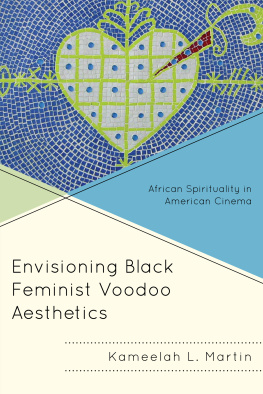

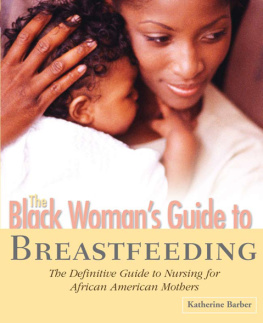
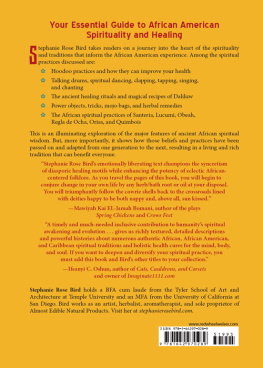
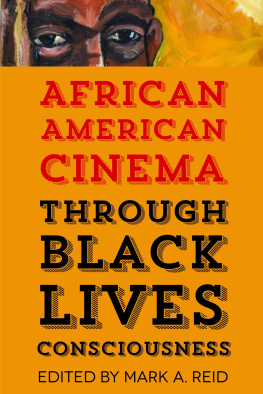
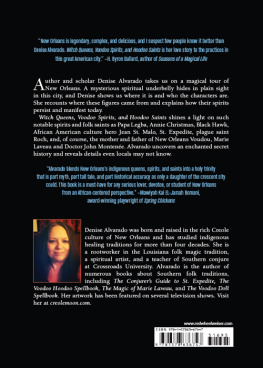
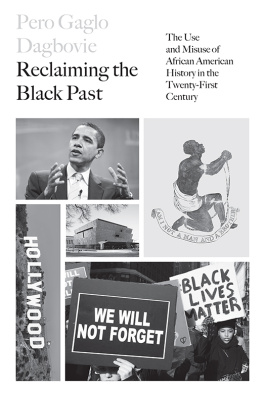

 TM The paper used in this publication meets the minimum requirements of American National Standard for Information Sciences Permanence of Paper for Printed Library Materials, ANSI/NISO Z39.48-1992.
TM The paper used in this publication meets the minimum requirements of American National Standard for Information Sciences Permanence of Paper for Printed Library Materials, ANSI/NISO Z39.48-1992.